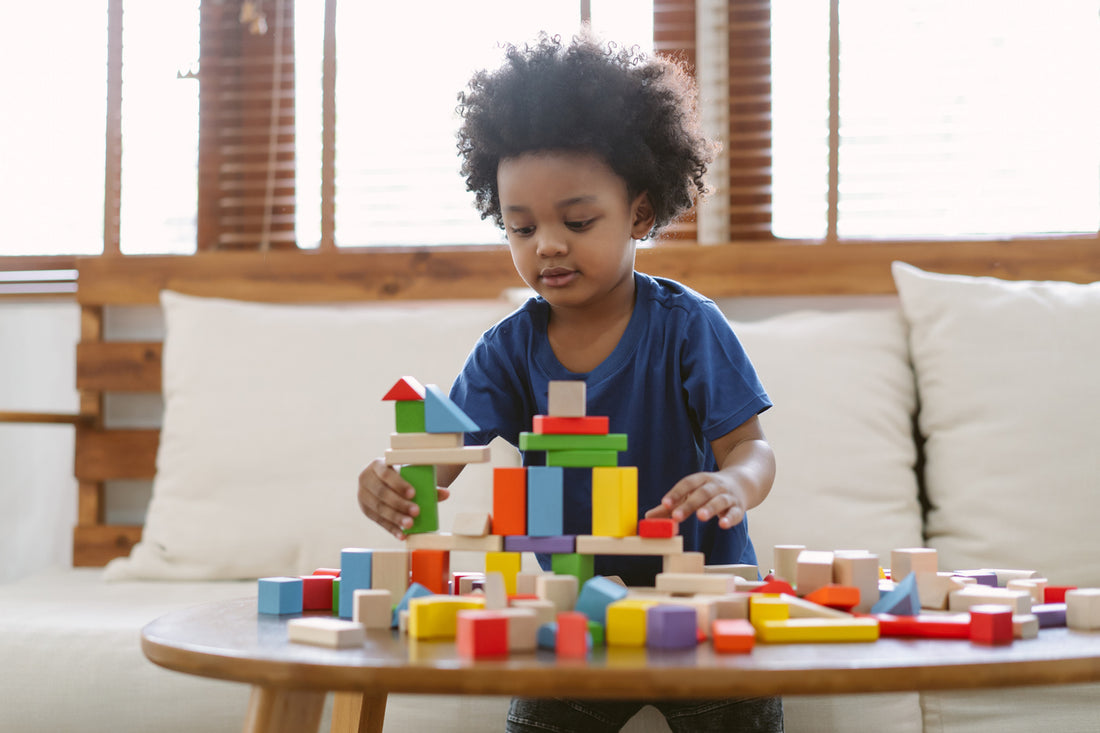
The Importance of Play-Based Learning
As a parent, I’ve seen firsthand how important it is for kids to experience learning through play. My wife and I have always prioritized finding preschools that embrace play-based learning, and watching our twins and older son thrive in these environments has been deeply rewarding.
From building early math and reading skills to developing empathy and problem-solving abilities, play is more fun, and iit’s the foundation of healthy, happy early childhood development.
What Does Play-Based Learning Mean?
Play based learning is a teaching philosophy rooted in the belief that children make sense of the world through play.
Rather than sitting still for formal instruction, young learners engage in playful activities that foster critical thinking, cooperation, and creativity.
Research backs this approach. According to the United Nations High Commission for Human Rights, play is so essential to child development that it has been declared a right of every child.
In play-based learning, the child leads the activity while educators act as guides, ensuring that the child explores ideas, solves problems, and builds on their natural curiosity.
This model isn’t new, either - it has deep roots in educational theory, from philosophers like John Locke to educators like Maria Montessori.
A Historical Perspective: Learning Through Play
The concept of play-based learning dates back centuries. Martin Luther in the 1500s believed in the importance of play for young learners.
In the 19th century, German educator Friedrich Froebel formalized the notion with the creation of the "Kindergarten" system, built around the idea that children naturally learn through play.
Maria Montessori further expanded this with her belief that children should learn through their senses first, then through intellect.
These foundational thinkers have shaped the way we understand early childhood education today.
The same principles of active learning, sensory engagement, and child-led exploration continue to influence modern play-based learning models, from preschools to primary schools.
Examples of Play-Based Learning Activities
In play-based learning, typical classroom activities can range from dramatic play to puzzle-solving, art projects, and building games.
For example, role-playing games, where kids pretend to be shopkeepers or superheroes, help develop language skills, cooperation, and emotional awareness.
Even something as simple as block-building teaches early math concepts, like symmetry and balance. These activities make learning feel seamless and enjoyable for young minds.
Take the Curious Kingdom Castle Playset from Playper, for instance. Kids can assemble the playset pieces like a puzzle, using their fine motor skills and problem-solving abilities to bring the castle to life.
Once it’s built, they can engage in imaginative play, creating stories and characters with King Ketchup and Snuffles the dragon.
This type of hands-on, immersive activity hits the sweet spot for play-based learning, combining storytelling, problem-solving, and collaboration—all through play.

The Science of Play-Based Learning in Early Education
Numerous studies have demonstrated that play-based learning supports the brain’s development. A study from the American Academy of Pediatrics found that play "contributes to the cognitive, physical, social, and emotional well-being of children."
Children engaged in playful learning environments show greater retention of information, enhanced social skills, and more curiosity. To explore how this impacts cognitive and social growth, check out our detailed post on Play-Based Learning and Child Development.
In a structured play-based environment, children are encouraged to interact with their peers, take turns, and cooperate.
This builds emotional intelligence and teaches them how to manage their feelings - skills that are critical for life beyond the classroom.
Importantly, the skills developed through play extend to academic success as well.
The connection between playful learning and cognitive development is clear: children exposed to more play opportunities tend to perform better in both math and reading assessments.
Why Play-Based Learning Matters Today
For parents like me, play-based learning is an essential part of raising curious, well-rounded kids.
At home, I’ve seen how quickly my children pick up on new ideas through playful exploration. With toys like the Curious Kingdom Castle Playset, they get to create stories, develop social skills, and engage in critical thinking - all while having fun.
As we embrace this approach in education, it’s important to remember that play-based learning isn’t about delaying "real" learning. Instead, it’s about laying the groundwork for life-long curiosity and a love of learning.
Play makes these early lessons stick, transforming them into meaningful experiences.
Conclusion
So, as you consider the best educational environment for your child, ask yourself: How much play is involved in their learning?
With so much evidence supporting its benefits, play-based learning is an approach worth embracing both in and out of the classroom.
To see how play-based learning impacts different areas of development, explore more in our article on Play-Based Learning and Child Development.
